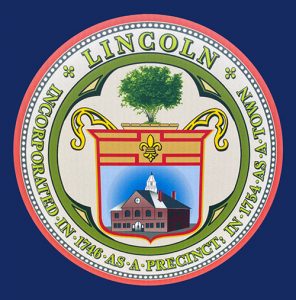 The process of examining Lincoln’s open Town Meeting — “democracy in its purest form,” as Moderator Sarah Cannon Holden said — kicked off on September 16 with two sessions where dozens of residents offered initial feedback.
The process of examining Lincoln’s open Town Meeting — “democracy in its purest form,” as Moderator Sarah Cannon Holden said — kicked off on September 16 with two sessions where dozens of residents offered initial feedback.
Anyone who wasn’t able to attend may offer their feedback on this Padlet page, which asks what currently works well about Town Meeting, what could be improved, and topics that the Town Meeting Study Committee (TMSC) should explore. Links to the slide deck and a recording of the morning Zoom sessions as well as the Padlet link can be found on the TMSC web page. The Padlet page — which already includes transcribed comments from both of this week’s sessions as well as those submitted to the Select Board since last spring — will stay open for comments and questions until Friday, Sept. 20.
Holden outlined some basic procedures as well as changes in recent years that have made Town Meeting more efficient, such as putting more warrant articles onto the consent calendar for a single vote, and rolling multiple budget presentations from each major cost center into a single presentation by the Finance Committee.
Town counsel Joel Bard addressed the legal aspects of some ideas that have already been floated since last spring’s controversial Annual Town Meeting:
- A split-session Town Meeting where issues would be debated on the usual Saturday and then all votes would take place at another gathering several days later — state law doesn’t prohibit this, but Lincoln’s bylaw would have to be amended, Bard said. Voting would be handled the same way as it now is: in person, either by voice vote or clickers. Although money has been approved to buy clickers, exactly how they will be used (for example, whether or not votes will be anonymous) is yet to be determined. Also, it’s up to the moderator how each article’s vote will be conducted; “it’s much faster to have yeas and nays when the outcome is clear” for relatively noncontroversial issues, he said.
- Voting at the ballot box rather than in person — this isn’t possible without a change in state law, Bard said: “Then it becomes an election that’s highly regulated, as well as extremely inefficient and time-consuming.”
- Remote participation — This, too, would require a change in state law. Since the pandemic, the state has allowed remote attendance and discussion at meetings of boards and commissions, but not Town Meeting. It’s possible to have some attendees in a different collective location, such as the gym or some other overflow location, “but not remotely dialing in from home,” Bard said. And if there’s an insoluble technical breakdown preventing those in a secondary location from hearing and participating, the entire Town Meeting must be adjourned. “That’s a serious consideration,” he noted.
The Select Board will vote to confirm the TMSC’s charge at its September 30 meeting and begin accepting applications to serve on the committee in the first half October (an application form will be posted on the TMSC web page). Candidate interviews and appointments will happen late in October and meetings will begin in early November. A final report and recommendations are expected in fall 2025.
For clarification: Someone at the meeting asked about the deadline, and we were told it was at NOON on Friday, 9/20.